Protejamos el mensajero—Protect the Messenger
THE BISHOP OF PEACE AND THE DEATH OF JUAN CARLOS
[Obispo Medardo Gómez is called the Bishop of Peace in El Salvador]
Medardo calls his driver in time
to get us to Iglesia de la Resurrección,
city cathedral for the poor,
just before midnight. Church of the Resurrection.
Juan Carlos, 18, is dead, killed by gangs,
las maras, that call came last night—the Bishop
knows the wake will be tonight,
that the church will be occupied
by young people, by mothers and babies—
girlfriends, children sleeping on the floor,
covered in blankets. The Bishop knows
Juan Carlos died from a rival gang member's bullet.
La muerte de Juan Carlos, 18.
Sí, vive con Dios.
Medardo's first words. Yes, he lives with God.
Obispo del pueblo. Bishop of the people. Obispo de la Paz.
Sí, vive con Dios, a second time.
I sit between the man with the guitar
and the woman singing. Más alla del sol.
Further on. Beyond the sun.
Young women weeping in other worlds.
Beautiful in tears recycling loss and revenge.
The romance of violence.
Juan Carlos, 18, dressed in white,
dressed for the journey. Four candles
lit at each corner of the coffin.
A colored drawing by his little sister
full of the things of this life Juan Carlos will miss.
Say goodbye to them, Juan Carlos, 18,
member of this Community of God, killed by gangs.
This world did not love you enough to keep you.
The people's bishop, Obispo Medardo Gómez, takes it in.
Medardo. Obispo.
Telephone by his bed.
Telephone at the breakfast table.
No secretary screening the Bishop's calls.
He takes calls from the people who have his number.
Another one of his children dead.
The Bishop standing with his people at midnight.
Dios es Dios vivos.
Dios es Dios.
Sí, vive con Dios.
Dios es Dios de vivos.
No de muertos.
Ese noviembre es el mes de martires.
Ese mes es Día de todos los Santos.
Somos perdonados a Dios.
Terminado los engaños.
Más alla del sol.
And then, looking up, surprised—
Ah, el papá de Juan Carlos.
El papá de Juan Carlos.
Obispo sees the father of Juan Carlos.
He talks directly to him.
The father of Juan Carlos stands.
White shirt, wrinkled.
Standing before the women.
Standing before Obispo.
Medardo Gómez, Bishop of Peace.
The son, Juan Carlos, taken down by a gun.
Medardo speaks directly to the father of Juan Carlos,
18, dead by gangs, gunned down by a rival's bullet.
No tenga miedo de la Iglesia.
Don't be afraid of the Church.
Esta es la casa de Dios.
Aquí es la oficina donde yo trabajo.
Tu estas seguro aquí, en esta casa.
Here is my office. You're safe here.
Medardo sings, Tuyo soy. Medardo picks out the songs.
One word comes up from me. No hay venganza.
No revenge. Venganza no existe.
From inside me who can say words that can't be practiced.
If El Salvador exported the death squads.
My own country exported the gangs.
Jim Bodeen
Iglesia de la Recurrección
San Salvador/Yakima
23 noviembre 2009-23 May 2010
SIGN ON THE LOWER SIDE OF THE JOURNALIST'S DESK
AT THE NEWSPAPER EL DIARIO IN SAN SALVADOR
Para que llegue el mensaje—
White dove, blue sky,
sniper's gunsight on the bird of peace—
Protejamos el mensajero—
Protect the messenger
in small type under this message:
En America Latina,
han sido asesinados
más de 300 periodistas
en los ultimos 10 años.
More than 300 journalists
have been killed in Latin America
in the last ten years.
Jim Bodeen
12 de noviembre 2009
JURIED JUSTICE
In the juried trial
of the two lieutenants and the colonel—
dos tinientes—Mendoza y Espinoza
y el coronel, Peña Veda—
held in July, 2002—
soldiers were supposed to get
30 years in prison—
they got 90 days instead.
My friend was one of the jurors.
Before he was chosen,
he used to joke about it—
I don't want anything to do with that trial!—
And then he was selected
to be one of three jurors.
He listened to it all and did his job.
They put a cloak over his head
and put him on a plane out of the country.
They sent him to North Dakota
and got him a job in a green house
working in potatoes.
His life sentence
still speaks for truth.
Jim Bodeen
19 February 2005
FRAGMENTS FROM THE NOTEBOOK
AFTER THE POETRY READING IN SAN SALVADOR
DURING A CONVERSATION ABOUT POETRY
La tinta más débil es mejor que
cualquier memoria brillante,
the man begins, standing
in the back of the room.
I catch this much
in order to be certain
what he says next:
The poet who is not a voice
for his people, no matter
how beautiful his words,
how skillful his verses—
regardless of his gifts—
As a poet, if he doesn't speak
para el pueblo, for his people,
he will only ever be a canary.
Jim Bodeen
San Salvador—Yakima
2005-2010
Subscribe to:
Post Comments (Atom)




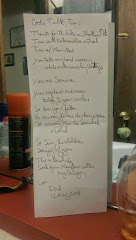

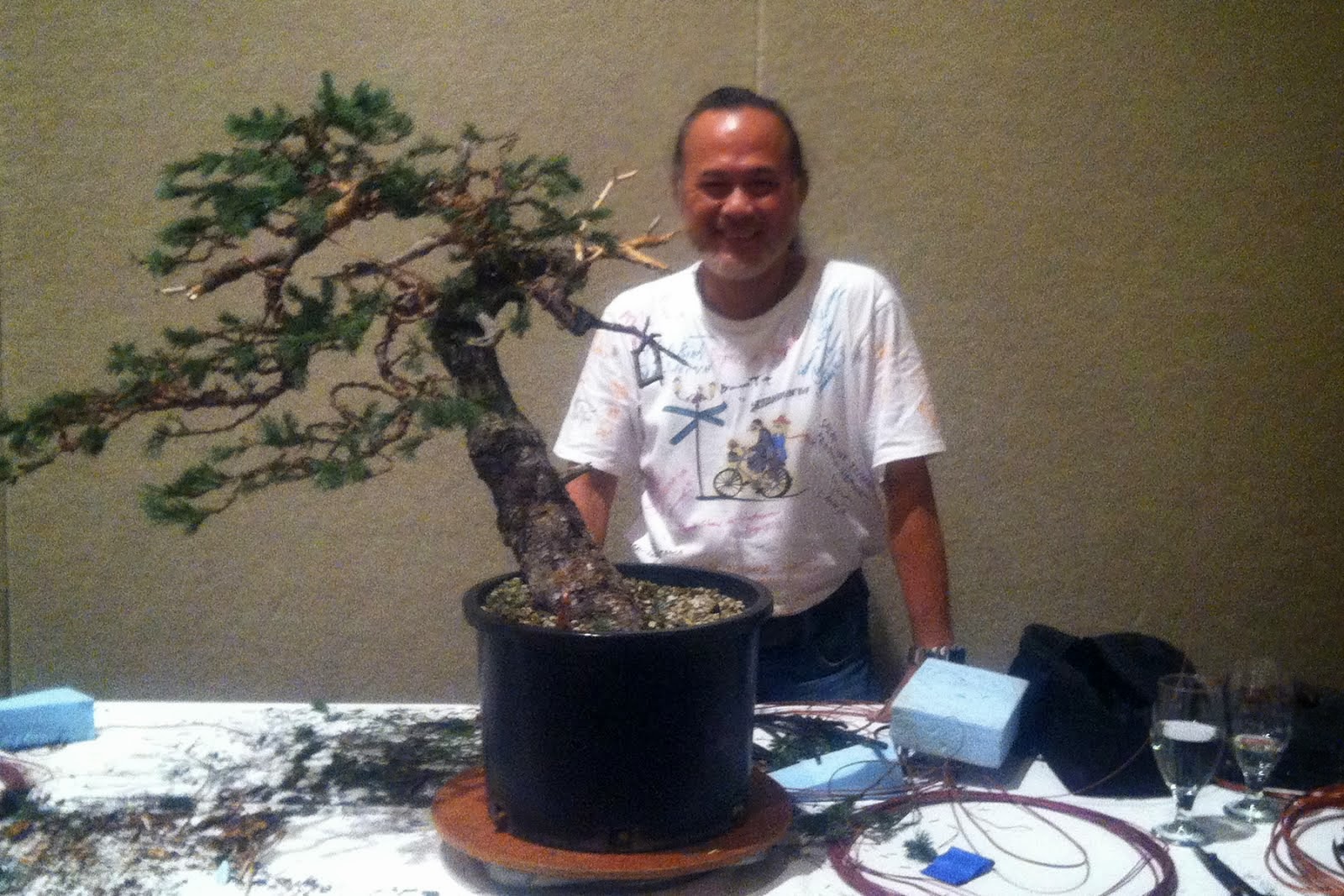
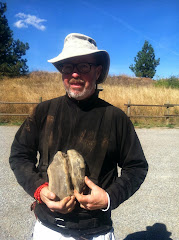


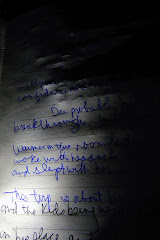

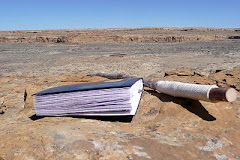
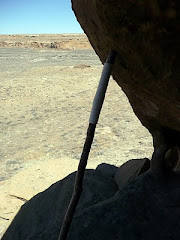


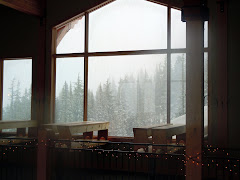


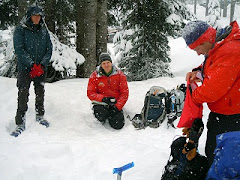
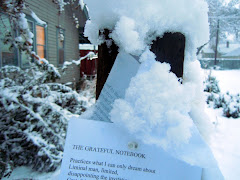

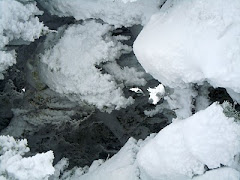
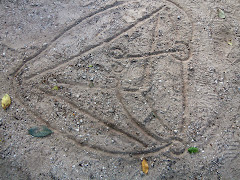












i am intrigued by the image of the canary, since the canary makes its message clear by song, but also by giving of its life to warn people, the canary in the coalmine. in some ways the canary works like the poet in both ways, to make the music but also to give proper warning, to keep people awake in the world. kjm
ReplyDeleteImportant work on the canary, Kevin. Beautiful and unforgettable. Weigh in on the poet anytime. jb
ReplyDeletePowerful poem for juan carlos, exportation, after all our heavy handed deportation, the presence of the Bishop of Peace helps to fend off desolation, though this certainly is an echo of the senseless killings we harbor in our own communities. kjm
ReplyDelete